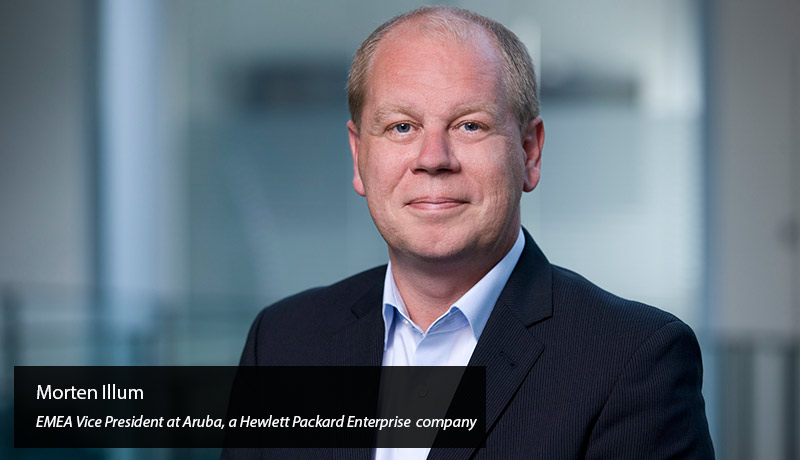Four steps to hybrid workplace success

By: Morten Illum, EMEA Vice President at Aruba, a Hewlett Packard Enterprise company
After the initial network overhaul that many rushed through to enable work from home at the start of the pandemic, organizations across EMEA now have their sights firmly set on the next stage of workplace transformation: the hybrid workplace.
And Aruba is no different, with conversations already underway about a possible phased reopening of our sites – with a small number of team members to begin with so we can scale up (or back down) as local Covid-19 conditions allow. And that’s the thing – we just don’t know what is ahead.
As vaccinations roll out across the region, the move to hybrid working presents many new challenges for organizations, but it is also indicative of a greater business challenge – constant change and uncertainty. 2020 proved that it is no longer enough to prepare for the next thing. Organizations, and their networks, must be prepared for everything.
But as they look to revamp their networks to support hybrid working, many business leaders are struggling to understand how the investments they make now can deliver long-term value and set their business up for maximum agility. No one wants to risk spending money on setting up their new office only to find employees (though not me) would rather keep working from home, for example.
To help bring some clarity Aruba has put together a roadmap to long-term hybrid workplace success – a four-step guide featuring the voices of some of our top experts, giving actionable advice on building a network that supports this next stage of workplace evolution and the ones beyond that.
- Defining your hybrid working strategy – Just as every organization has had a unique experience of the pandemic, the exact arrangements for the “new normal” of hybrid working will differ. And while leaders are understandably eager to kick-start their office redesign and get employees back in, first they must determine the right hybrid working strategy for their business. But who should you bring into that discussion and why? Have you considered both the internal and external contexts your business operates in? And how can you track your strategy’s performance and whether it needs to change?
- Integrating the longer-term home office into your hybrid workplace – While working from home was initially a reactionary solution to Covid-19, now that we all know we can do it, it is here to stay. If organizations wish to enable their employees to successfully work from home in the long-term without impact or risk, however, they need to strengthen their remote foundations – before they even start thinking about the physical office. What does that look like? And how can you future proof for further changes?
- Reimagining the physical office and its connectivity needs – Designing an office that will work for our new reality and the near future will challenge organizations to rethink everything from their network infrastructure to physical architecture. From smaller, better utilized spaces, to hyperaware buildings, what trends should organizations factor into their planning process – and how can they implement the connectivity to support them?
- Financing the workplace of tomorrow, hybrid or otherwise – Enterprise-level connectivity and equipment at home. New workspaces, automated systems and cognizant buildings at the office. The hybrid workplace model, while hugely exciting, cannot function without fast, reliable wireless connectivity and a unified, automated and secure network. And for most organizations, this will mean investing in their IT infrastructure. But with finances already stretched, how can organizations leverage their current budgets and resources to create a network that enables the future of work – whatever it looks like?
There may be light at the end of the tunnel – but there are still complex discussions and many decisions that need to be made before we can step into the next normal. But rather than feeling fearful, I hope that our guide will help you see beyond the immediate challenges and stay enthusiastic about the hybrid workplace. We are entering a new era of work and I cannot wait to see what it will bring.
